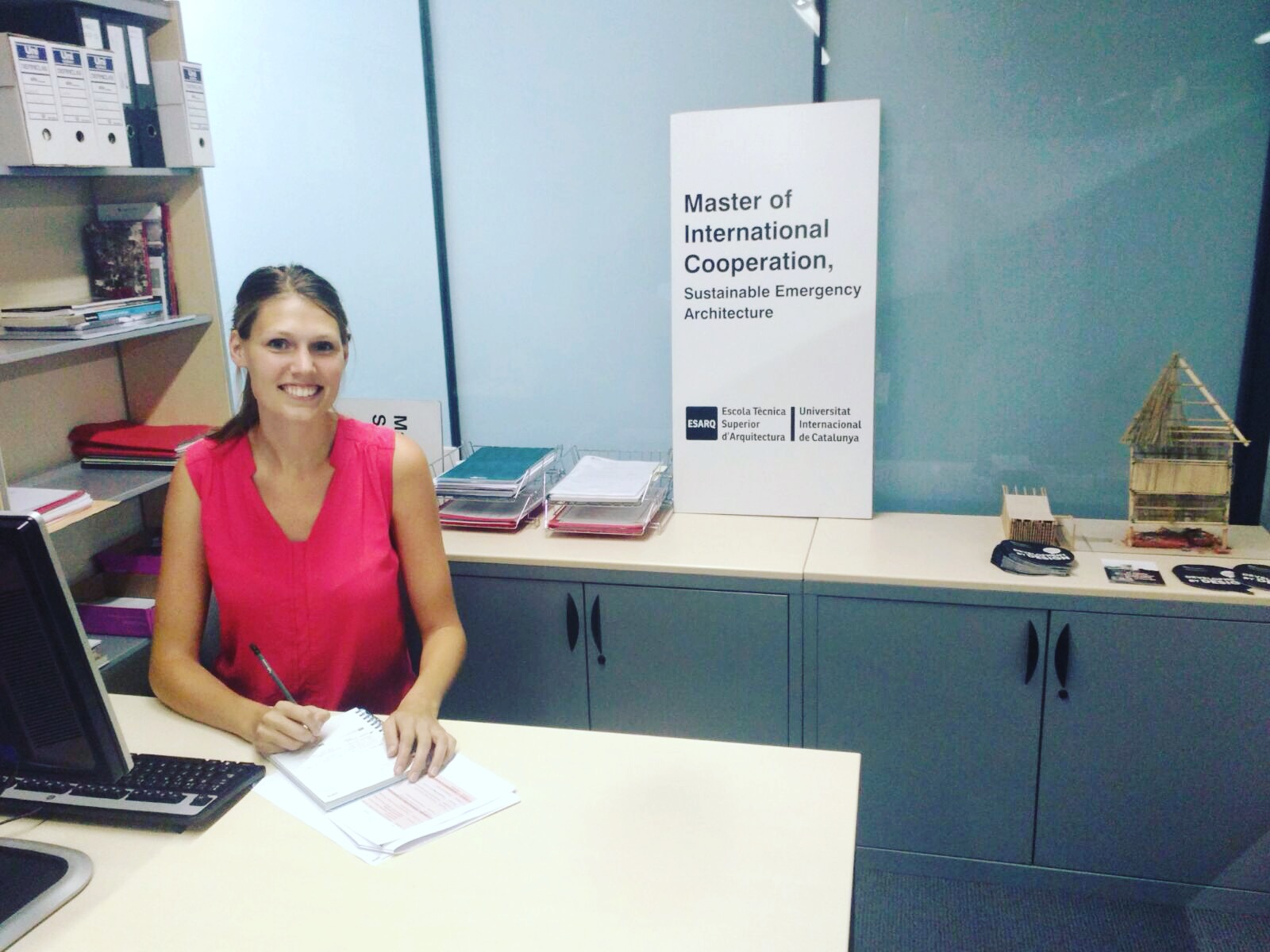
Adding to this year’s course highlights, we’re excited to welcome Allison Koornneef, a graduate of our 2012-13 class, as the new assistant coordinator of our masters program. Allison is from Toronto, Canada and has a background in Environmental Design from OCAD University. Her master thesis analyzed participatory data gathering processes in informal settlements, and during her internship with SPARC in Mumbai, India, she contributed to a sanitation survey using GIS mapping. She is passionate about water and sanitation, mapping, and participatory action as sustainable development. In her new role within our team, she’ll be assisting our coordinator Raquel Colacios, and will also continue her research.
Get to know a little bit more about Allison and her trajectory in this interview:
Welcome back Allison! What have you been doing since graduating from our program?
Pursuing my interest in the subject of water and sanitation, I completed an online course through Engineers without Borders, Spain, entitled Water and Human Development (Agua y Desarollo Humano) to expand my technical knowledge. I strongly believe that all professions benefit greatly from learning from other disciplines and their perspectives, especially since humanitarian work intrinsically is collaboration amongst professions and cultures.
How did you decide on joining as program coordinator?
After much consideration, I decided that I wanted be involved in the academic world and to continue on with research for now for personal and professional reasons. Of course in the future I would love to contribute more directly to small-scale, participatory development. Perhaps I will invent a particular product or solution, or perhaps my research will lead to new policies and guidelines. My interest in the field is diverse and I could see my career taking many different paths. For me, the more important thing is that somehow I make a contribution that will truly benefit individuals and communities.


Images of Mumbai taken by Allison during her internship with SPARC during our master
How do you feel the program has contributed to your career?
One thing I loved about the program is the dynamic learning environment with fellow classmates from various backgrounds as well as the variety of professionals from both the field and from academia. From the visiting professors and guest lecturers to the collaborations with other universities, we became part of and gained access to a large network of inspiring people doing important work.
Perhaps the most formative part of the Masters was the internship that I completed with with SPARC in Mumbai, India. After all the classes, research, and projects, we got to learn first-hand the realities of working as an NGO. All of the staff were very knowledgeable and explained the idiosyncrasies of the context, frameworks and policies of their work as well as the challenges of development. We were also privileged to be able to do a lot of field work. In those three months the content of the entire course comes together and begins to make sense and yet at the same time completely redefines itself.
What advice would you give to students taking our course or interested in this line of work?
Passion is just as important as patience. It’s a competitive line of work to enter and the work itself can be challenging. Job postings are rather specific in what they require, so do what you can until you find or make your opportunity. And learn from others; everyone has a wealth of knowledge and a different perspective to offer. There are various ways to be involved in humanitarian and development work, so keep your mind open to different possibilties.
For our new students, it’s a privilege to have you all here and I can’t wait to get to get to know you!

